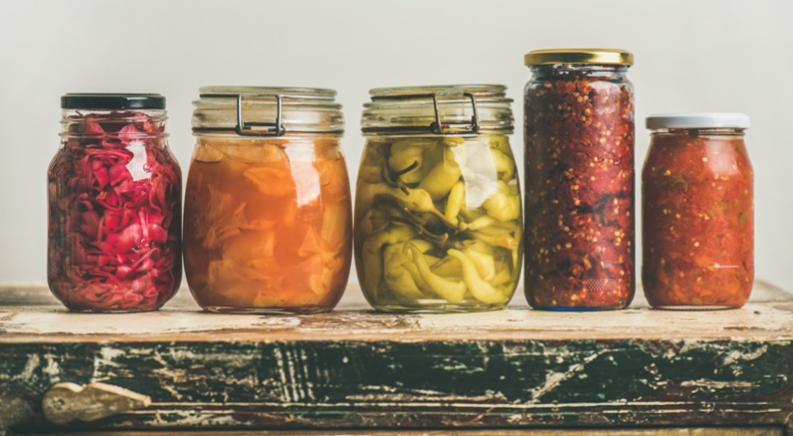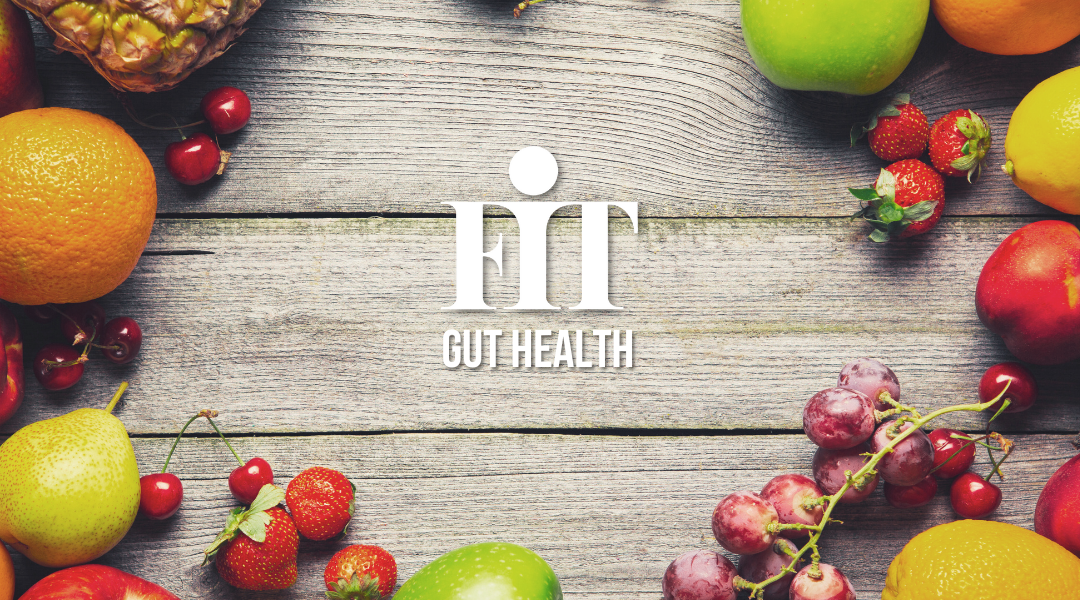Our digestive system is the mediator between the outside world and our internal environment.
According to the Institute for Functional Medicine (link), the gut is the most important part of health because of its ability to absorb necessary nutrients for life and eliminate excess toxins, chemicals, hormones, and waste products from the body. If we impair these functions, we end up with chronic disease and illness.
Within the paradigm of functional medicine, there is not only absence of disease but optimization of health in order to mitigate the development of chronic disease or illness. Meaning, if we proactively care for our bodies in every way we can, we can avoid disastrous complications later down the line. This will also increase our “healthspan”, or the amount of healthy years we experience over our lifespan.
When considering gut health, certain health problems and physical manifestations are evidence of compromised gut health. This includes skin issues, mental health decline, overall energy level and focus, autoimmune disease, heart disease, the list goes on and on (Wong et al; 2012).

Get to know your digestive system!
When referring to digestion and the organs involved, we’re discussing an orchestra of functions that allow for the digestion, transportation, and absorption into the body. Digestion is one of the primary ways our internal world interacts with the external environment. It acts as a barrier to potentially harmful substances, chemicals, bacteria, and viruses. This involves the mouth, stomach, small intestine, pancreas, liver, gallbladder, and large intestine (colon). All or these organs are controlled via a cascade of hormones all working together for optimal function and digestion (Hughes; 2020).
Additionally, our digestive system is helped out by an army of native bacteria (~2,000 species) whose primary role is to aid in digestion and protect us from pathogens (van der Merwe; 2021).
Did you know – for every one cell you have in your body, there are 10 bacteria?! They make up what is called a “microbiome” or a community of bacteria that benefit our health in a symbiotic relationship. Our skin, gut, and mouth all have unique types of bacteria that provide an additional layer of protection – nutrient and drug metabolism, immune system modulation, and even gut mucus layer maintenance. Dysbiosis, or the disruption of normal gut flora, can lead to chronic disease and even neurological disorders, further reinforcing the need for a healthy gut.

We can optimize our digestion and gut health through our behaviors, lifestyle factors, and daily habits. We need to consider the whole person, including their eating strategy, stress management, sleep hygiene, and exercise. These factors play a huge role in our overall health and health changes, and can be incredibly informative when considering particular parts of life that might be contributing to less than ideal health.
Let’s talk tenets – each lifestyle factor majorly influences your health and wellbeing
When we consider our eating strategy,
the foods and supplements we ingest have a direct impact on our overall gut health. Some of the most impacted areas are inflammation status, digestive efficiency, the ability to absorb and use ingested nutrients, and elimination schedule.
Certain dietary factors heavily influence our gut mucus lining, gut microbiome, and gut immunity – amount of fiber intake, diet diversity, quality of dietary fats, and amount of phytochemicals consumed from plants (Desai et al; 2016). A nutrition plan rich in fruits and vegetables results in increased dietary fiber, antioxidants, polyphenols, and oligosaccharides (complex sugars) AND also increases the diversity of our gut microbiome. Additionally, this nutrition plan also contributes to decreased overall all-cause mortality and disease complications such as cardiovascular disease, diabetes, and cancer (van der Merwe; 2021; Zhong et al; 2020). This is consistent with many diets adopted by nutritionists and dieticians, like the DASH diet (Dietary Approaches to Stop Hypertension) or Mediterranean Diet.
Even better, fermented fruits and vegetables promote the health of the microbiome and its ability to bolster our health as well. Foods like sauerkraut, kim chi, pickled vegetables, and fiber supplements all invigorate the gut microbiome and increase its overall function. Probiotic supplementation will also help to re-inoculate the gut microbiome and protect the gut from injury.
Tip from a certified nutritionist – increase the variety and quantity of your dietary fiber! My favorites are chia seeds, carrots, cabbage, broccoli, avocado, and oat bran. Also, here are some of my favorite probiotics – Dr. Formulated Once Daily Ultra 100B, Ancient Nutrition’s SBO Gut Restore formula, and Jarrow Formulas Saccharomyces boulardii.
When we consider stress management
and its role with gut health, it’s important to manage our body’s reaction to the stress. Our bodies should be able to interpret and differentiate good stress from bad stress; thus, the reaction and our ability to mitigate the effects of stress on our nervous system are imperative for maintaining good gut health, immunity, and microbiome diversity (Ma, et al; 2021).
Chronic stress changes the immune activation within the body and cell products released, such as pro-inflammatory markers made by the immune system. These components have downstream effects throughout the entire body, but one of the more notable effects is in the gut – reduced gut microbiome diversity and increased inflammation of the GI tract (Westfall et al; 2021). One study showed a direct correlation between gut health, hormone production, and levels of perceived stress and anxiety. This is reinforced when we associate an IBS diagnosis with chronically high levels of anxiety, perceived stress, and even depression.
If left alone, we see a link to progressive cognitive decline and ultimately the development of Alzheimer’s and Parkinson’s (Ma et al; 2021). On the opposite side of the coin, supplementing with beneficial bacteria in the form of probiotics resulted in improved mental health status and reduction of anxiety symptoms overall (Ma et al; 2021). As always, we are incentivized to manage our stress while actively providing the important organisms for gut health and mental health through probiotic supplementation.
Supplement Time!
Some of the more beneficial bacteria used to improve gut health and mental health include strains from the Bifidobacterium family and Lactobacillus family – both commonly found in a wide variety of probiotic formulations (Ma et al; 2021).
When we consider sleep hygiene
and how it affects gut health, we are reminded just how connected everything is in our bodies. Waking up throughout the night? Tossing and turning and not getting into deep sleep? Big interruptions to sleep like stress, sleep apnea, or kids? All of these can affect our gut health and microbial diversity.
Interrupted sleep and compromised sleep quality are the biggest contributors to gut health changes (Smith et al; 2019). Just like any other process in the body, sleep is modulated by a cascade of hormones and these hormones are very sensitive to certain changes in our external and internal environments. Sleep acts as a rejuvenation and regeneration time for the tissues in our bodies, and when interrupted, these processes are not able to continue or progress efficiently.
Additionally, we see high levels of inflammatory markers produced when we miss sleep, lending to changes throughout the body and especially in the gut (Smith et al; 2019). Interestingly, the relationship works both ways – the gut can also affect our sleep patterns. If we have limited microbial diversity, increased food reactions and inflammation in the gut, or excess immune system activation (like in autoimmune disease), we see chronic sleep disturbances. So, getting good quality sleep improves our gut health and improving our gut health improves sleep? Easy peasy!
Some tips for optimizing gut health…
- Fermented foods, including: kim chi, sauerkraut, kombucha, pickled vegetables, etc
- Eating a wide variety of fruits and vegetables, balancing starchy and non-starchy veggies (20%, 80%) (Link w/ examples/ pictures)
- Regularly eating whole grains and high fiber foods like beans and seeds
- Getting good quality, uninterrupted sleep on a regular basis
- Mitigating the effects of stress in the body with mindfulness meditation, breathwork exercises, journaling, movement therapy, etc
- Maintaining a probiotic regimen that supports both gut and mental health (including Lactobacillus and Bacteroides)
- Occasional fasting periods, allowing the gut to heal and control exposure to food allergens and sensitivities
- Supplementing with fiber, trace minerals, and digestive enzymes
- Reduce coffee intake, aiding in digestion and absorption
Long story longer (but it’s so exciting!), choose to be healthy. Make conscious decisions towards bettering health every day, and you will see the benefits all throughout your body. Understand that each positive choice made today will benefit you for many years to come.
Sources:
Hughes, R. L. (2020). A Review of the Role of the Gut Microbiome in Personalized Sports Nutrition. Frontiers in Nutrition, 6(January). https://doi.org/10.3389/fnut.2019.00191
Ma, T., Jin, H., Kwok, L. Y., Sun, Z., Liong, M. T., & Zhang, H. (2021). Probiotic consumption relieved human stress and anxiety symptoms possibly via modulating the neuroactive potential of the gut microbiota. Neurobiology of Stress, 14, 100294. https://doi.org/10.1016/j.ynstr.2021.100294
Smith, R. P., Easson, C., Lyle, S. M., Kapoor, R., Donnelly, C. P., Davidson, E. J., Parikh, E., Lopez, J. V., & Tartar, J. L. (2019). Gut microbiome diversity is associated with sleep physiology in humans. PLoS ONE, 14(10), 1–17. https://doi.org/10.1371/journal.pone.0222394
van der Merwe, M. (2021). Gut microbiome changes induced by a diet rich in fruits and vegetables. International Journal of Food Sciences and Nutrition, 72(5), 665–669. https://doi.org/10.1080/09637486.2020.1852537
Westfall, S., Caracci, F., Estill, M., Frolinger, T., Shen, L., & Pasinetti, G. M. (2021). Chronic Stress-Induced Depression and Anxiety Priming Modulated by Gut-Brain-Axis Immunity. Frontiers in Immunology, 12(June), 1–20. https://doi.org/10.3389/fimmu.2021.670500
Institute for Functional Medicine (2020, Aug). Beyond the Brain: Large Study Associates Gut Microbial Metabolism With Mental Health. https://www.ifm.org/news-insights/august-2020-hot-topic-beyond-brain-large-study-associates-gut-microbial-metabolism-mental-health/



















